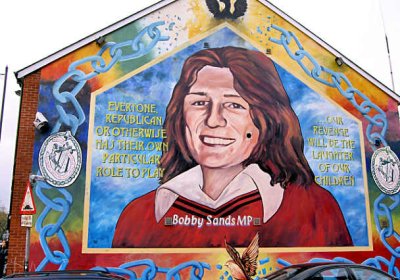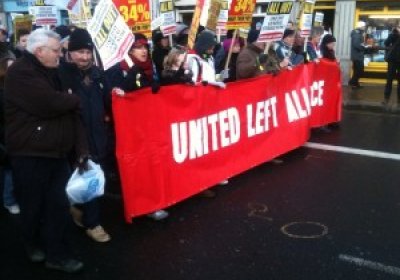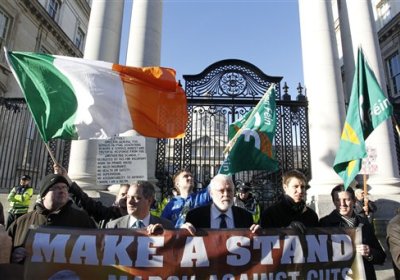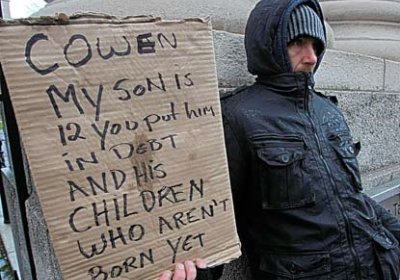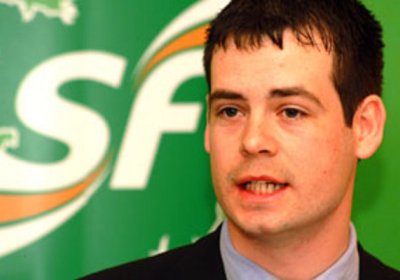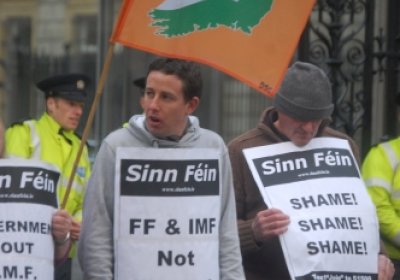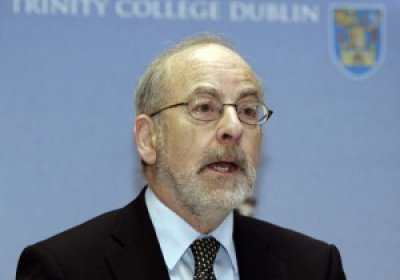This year marks the 30th anniversary of the hunger strikes by Irish republican prisoners n the British-run Long Kesh concentration camp — an event that shook the world.
The British government of Margaret Thatcher let ten men starve themselves to death rather than negotiate with them over their demand to be recognised as political prisoners. The first prisoner to begin the hunger strike was 27-year old Bobby Sands. He died on May 5, 1981 after 66 days of starvation.
Ireland
Ireland’s new Fine Gael (FG)-Labour Party (LP) coalition government has set out an agenda of continuing the savage austerity and spending cuts of the Fianna Fail (FF)-Greens coalition ii has replaced.
The cuts are enforced by the International Monetary Fund-European Union bailout of the Irish government.
In the February 26 elections, FF and the Greens were thrashed in a backlash against the bail-out and the anti-worker austerity that goes with it. The Greens failed to win a seat in the Dail (Irish parliament) and FF slumped from 77 seats to 20.
Economists warned on March 31 that the British government’s public-sector cuts will leave a shortfall of more than half a million jobs.
The New Economics Foundation (NEF) also warned that nowhere in the budget or “plan for growth“ was there “any evidence that the business tax cuts, regulatory tweaks and relatively minor changes to public-sector investment that are promised will deliver major economic transformation”.
Trade Union Congress general secretary Brendan Barber said the findings showed that “in recent years, the market has become the master, not the servant, of society”.
Ireland’s governing Fianna Fáil (FF) party and its Green Party coalition partner were massacred in a general election revolt on February 26. The most successful establishment party in Western Europe for the past 80 years, FF was demolished – reduced from 77 to only 20 seats on the back of public outrage over austerity measures and social spending cuts.
Irish Taosiech (prime minister) Brian Cowen resigned as leader of the government Fianna Fail party on January 22.
The move came in the midst of a political crisis caused by the Cowen government accepting an 85 billion euro bailout package from the European Union and International Monetary Fund.
The package will be accompanied by savage spending cuts that will drastically deepen the austerity imposed on the Irish people in response to the financial crisis that hit the southern Irish state in 2008.
For a decade, Ireland was heralded by the most ardent partisans of neoliberal capitalism as a model to be imitated. The “Celtic Tiger” had a higher growth rate than the European average.
Tax rates on companies had been reduced to 12.5% and the rate actually paid by the transnational corporations that had set up business there was between 3 and 4% — a CEO’s dream! By comparison, the company tax rate is 39.5% in Japan, 39.2% in Britain, 34.4% in France and 28% in the US.
Ireland’s budget deficit was nil in 2007. In this earthly paradise, everybody seemed to benefit.
The Republic of Ireland’s financial crisis, which has caused unemployment to rise from 4.3% in 2006 to 14.1% in October, has deep roots.
The conditions of the European Central Bank (ECB)/International Monetary Fund (IMF) “bailout” package for the Irish government will total €85 billion — at a higher interest rate than that tied to the Greek bailout in May. It is tied to the Irish government carrying out huge government spending cuts, tax rises for workers and wage cuts for public sector employees.
Irish workers are being told to pay for a crisis they did not cause.
About 100,000 people took over the streets of Dublin on November 27 to protest the Irish government’s “bailout package” from the International Monetary Fund and European Central Bank, and the savage austerity accompanying the loans, the Morning Star said on November 28.
The government formalised the loans, worth €85 billion, on November 29. Loan conditions include the government spending cuts over four years to reduce its deficit. The 2011 budget will contain €4.7 billion in cuts and €1.5 billion in new taxes, the Morning Star said.
Irish election officials said on November 26 that Sinn Fein candidate Pearse Doherty had won a long-awaited by-election in Donegal with an overwhelming 40% of the vote.
The election was blocked for months before it was forced on Prime Minister Brian Cowen by the Irish courts.
Cowen faces a struggle to win votes on raising taxes and cutting spending when the 2011 budget is unveiled in parliament on December 7.
Irish socialist republican party eirigi chairperson Brian Leeson has labelled the Dublin government’s four-year fiscal adjustment plan “a criminal charter for the wrecking of working class communities”.
Among the measures contained within the plan are:
• A €2.8 billion cut in the social welfare budget.
• The gradual increase of the pension age to 68 by 2028 and the reduction of the pension rate for retired public sector workers.
• The reduction of the minimum wage to €7.65 an hour.
• The raising of university registration fees to €2000.
The public finances of Ireland will, for the next three years at least, be subject to “regular reviews” by external monitors working on behalf of the International Monetary Fund (IMF), the European Union (EU) and the British and Swedish governments.
On November 21, the Taoiseach (Prime Minister) Brian Cowen and minister for finance Brian Lenihan, after a week of shocking lies and deceit, said they would accept the IMF/EU bailout.
It later emerged that the G7, made up of the seven most powerful countries in the world, had met to give its approval to the deal.
An “army” of European Union (EU) and International Monetary Fund (IMF) officials arrived in Dublin on November 18 “seeking to foist a large loan on Ireland in a bid to prop up the country’s embattled banking sector and save the European currency”, the Morning Star said that day.
Irish finance minister Brian Lenihan told MPs that Ireland, the EU and the IMF were exploring the prospect of forming “a contingency capital fund that would stand behind the banks”, the article said.
- Previous page
- Page 12
- Next page
